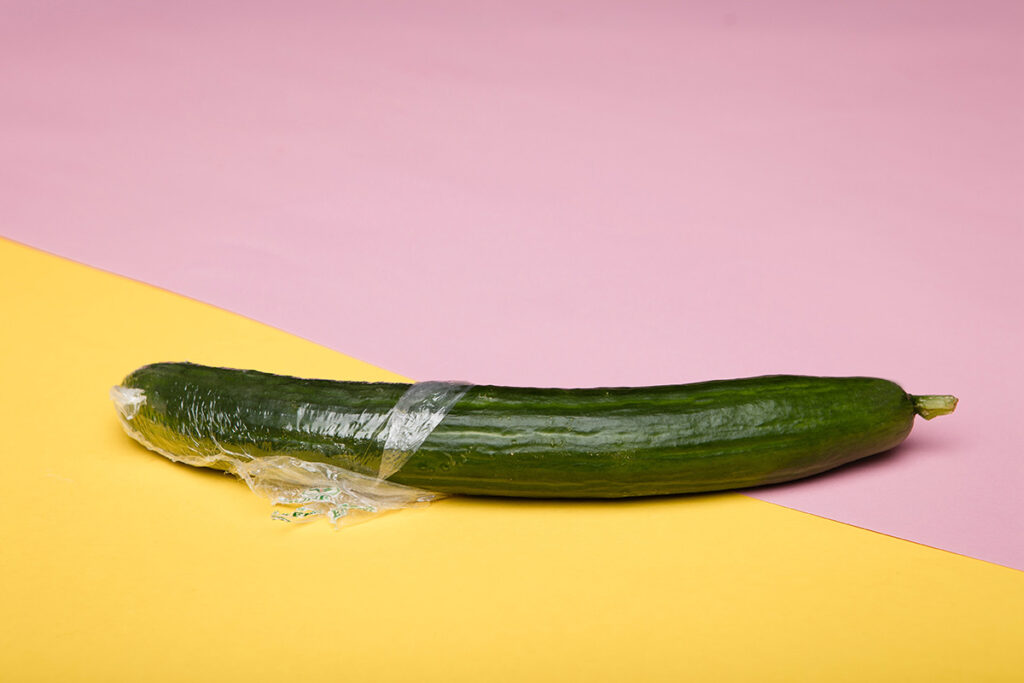In recent months, I have seen regular reports from retailers about plastic reduction initiatives. Or reports about products being sold that are grown in the Netherlands all year round, which raise questions from consumers about whether they will ‘tackle the plastic problem’.
With Seaspiracy widely watched on Netflix, it is known to more people that fishing is the biggest cause of the plastic problem in the ocean. I am convinced that more and more people are starting to see that eating more plant-based food is much more important for solving many problems than discussions about plastic straws.
The challenge is that the issues surrounding plastic use as a consumer are much more visible to consumers than consequences of keeping too many animals or too many fish.
I attended meetings at retailers when I was still working at Hessing (a major supplier of meal salads, lettuce and sliced fruit) about sustainable packaging.
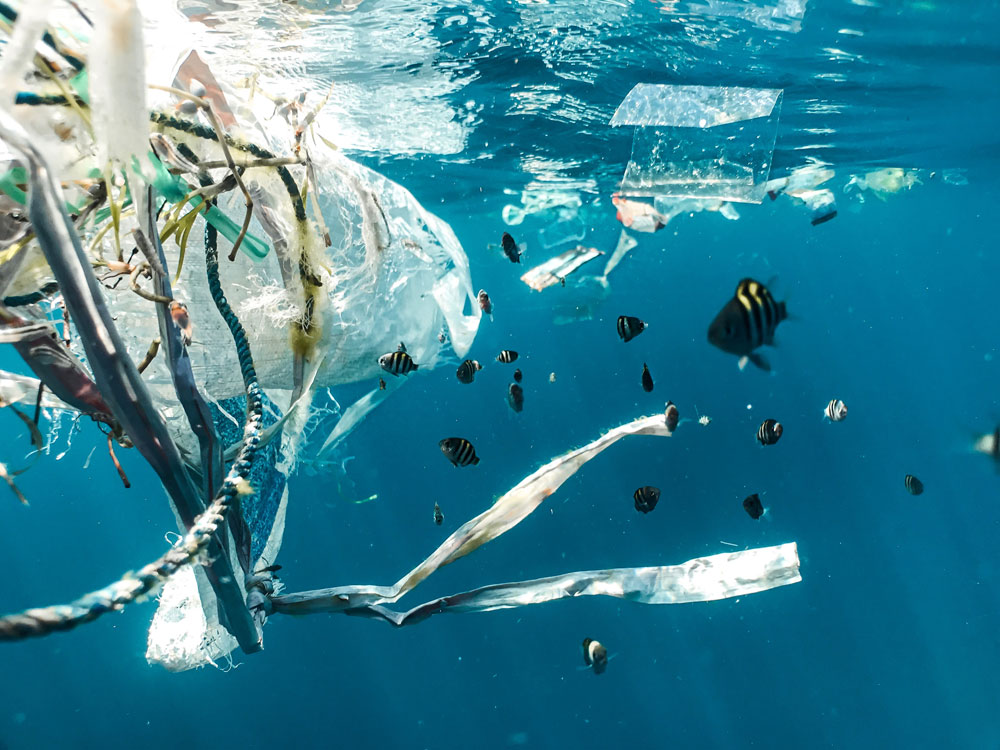
I noticed at the time the discrepancy between wanting to respond to what is really sustainable as a retailer, and what the consumer/shopper thinks is sustainable.
Sustainability is an important topic for (most) retailers. Every year there are several prizes to be won, which are even in targets. What if you can start changing the image of the consumer and shopper, which ultimately leads to a better position among your shoppers and more sales?
A lot of research has been done into what is really sustainable. An interesting study on this was done by Babette Porcelijn i.c.w CE Delft, among others. You can read this research in her book (the Hidden Impact).
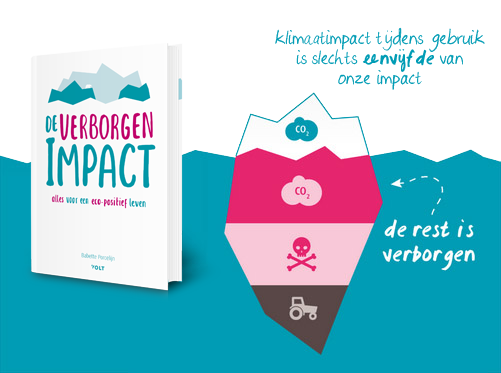
The impact of plastic within food products
Babette Porcelijn has researched the climate impact of all kinds of things. A big topic is food. The entire chain has been investigated from start to finish (including transport, keeping animals, every step up to consumption).
And what turns out? Plastic is only a small part of the impact in the Netherlands. For example, this is:
- Meat: 1%
- Cucumber: 10%
I did not know this before I read this book, and I worked at a company that uses a lot of plastic.
I am not in favor of using a lot of plastic, don’t get me wrong. But I do want to focus on where the big impact is. And you can guess where that is…
Eating less meat
One of the most important points of research is that we simply need to eat less meat. Fortunately, many large retailers are affiliated with the Green Protein Alliance (see link). The goal of this alliance is that by 2025, consumers will get 50% of their proteins from vegetable proteins.
This means that retailers have to stimulate this (e.g. through assortment, nudging or education). This is also interesting for retailers. For example, look at meat substitutes versus meat:
- Higher margin
- Less waste
- And long-term potential: studies by Good Food Institute, among others, show that plant-based shoppers spend 61% more in the supermarket than the average consumer. The consumer group is small but growing
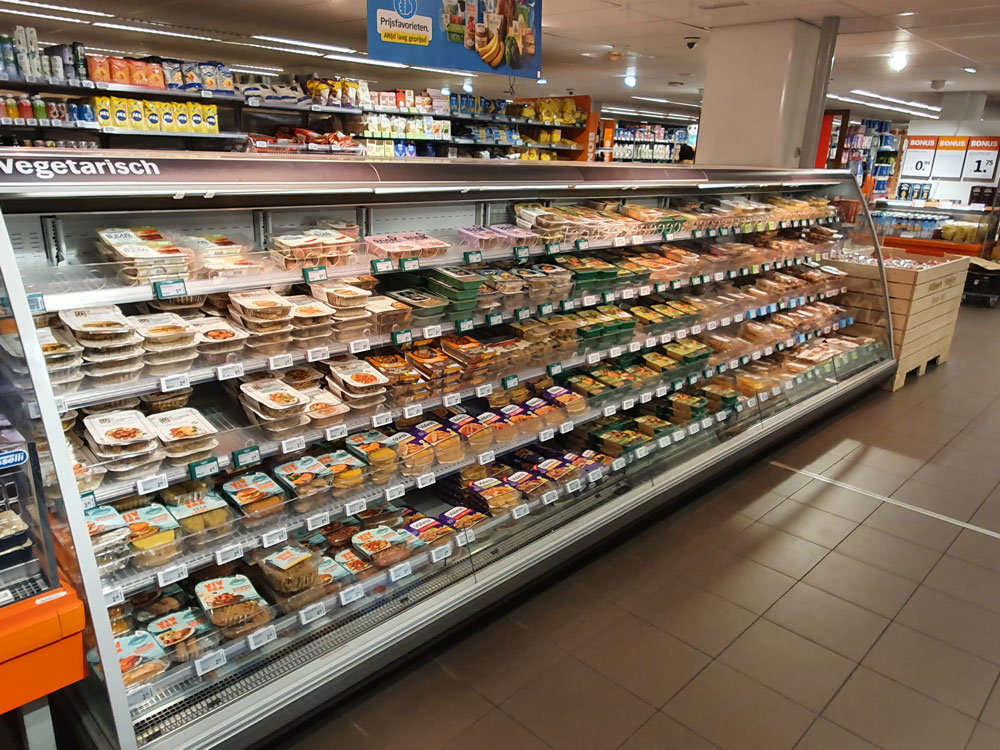
How can you help the consumer?
Within fruit and vegetables I see many opportunities, partly because I have worked in this category for years.
For retailers, it is almost always one of the most important product groups. There are already many great initiatives, there are some that I still miss:
- There is a lot of focus on local products (Albert Heijn will now sell Dutch strawberries all year round, PLUS cucumber). Retailers are also focussing on seasonal. I see a lot of opportunities in responding to the combination: season AND local. 'Milieucentraal' had a fantastic app, but unfortunately it stopped (see below). If you then looked up a product, you saw not only a score of, for example, A, but also why this score was given. A product coming from far can be sustainable, because it is grown sustainably there due to f.e. good climate, and that it is shipped by boat. Interesting for retailers and suppliers, because selling in season is often interesting for the margins!
- Help people choosing less processed food. The more processed, the less durable (in general).
- A plant-based choice is almost always the best. Babette Porcelijn has fantastic visuals on this.
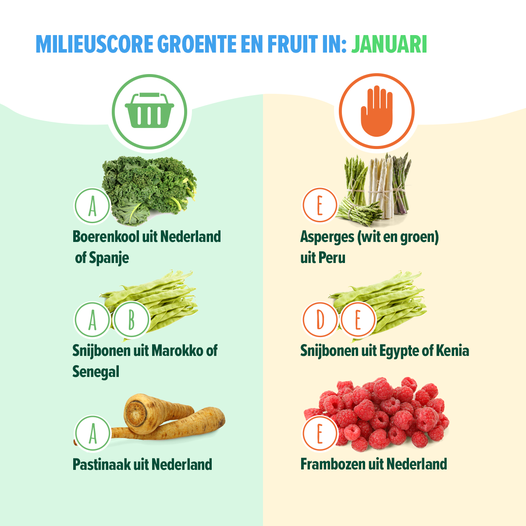
What next?
I understand the attention paid to plastic. It is only time to shift that attention, especially when it comes to categories like vegetables, fruit and meat.
Let’s make more impact!
Want to know more?
Want to know more about how I can help you as a retailer? Or do you have a product idea as a producer that contributes to this?
